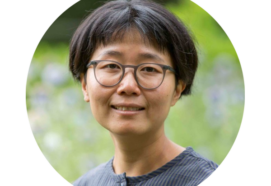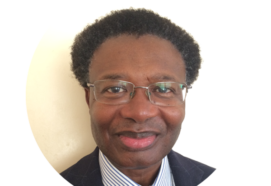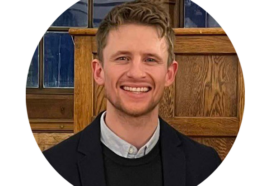Conference review Dyslexia: From assessment to intervention
This September saw ACAMH’s Wales branch host a one day conference on dyslexia in Cardiff. Over sixty delegates made the trip to the city’s All Nations’ Centre to listen to talks from leading researchers and practitioners. The day was opened with a warm welcome from Dr Owen Barry, chair of the Wales branch.
Prof Maggie Snowling followed with an in-depth look at the processes underpinning the disorder and the association between dyslexia and developmental language disorder – a frequently comorbid speech disorder.
After a brief pause to allow for some energetic discussions over tea and biscuits, Prof Joe Elliott – arch dyslexia sceptic and author of The Dyslexia Debate – took to the stage. His barnstorming assault on dyslexia as a diagnosis raised a few laughs in the room and provoked plenty of questions from the audience.
These discussions were made more lively by the diverse mix of delegates present – educational psychologists, specialist teachers, academics, child psychologists and psychiatrists were all in attendance.
These delegates were joined by almost the same number following along online via our interactive livestream – as well as watching the talks these virtual delegates chipped in their own questions. Speaker Maggie Snowling noted how these ‘virtual delegates’ weren’t shy about asking confrontational questions.
Joe Elliott’s provocative talk was followed by a buffet lunch. The Bridge spoke to delegates while they mingled and browsed the sandwich selection.
The Bridge enjoyed discussions about the socioeconomic factors affecting dyslexia and the added challenges of supporting Welsh-English bilingual pupils.
“I’ve read lots by both of them, it colours what we do in the field” said Sarah Gillie, a Specialist Teacher Assessor at Beacons Unique, an educational consultancy in the Welsh borders. “What was amazing for me was just to hear what they’re thinking at the moment and what’s going on in academia,” she said.
After lunch Dr Gavin Reid gave an authoritative talk on the latest forms of dyslexia assessment and intervention. We caught up with him afterwards, where he told us about the increasing awareness of dyslexia, both among teachers and elsewhere.
“More and more teachers are going to be trained to not only identify, but intervene in dyslexia,” he said.
We asked Gavin if he thought the UK was in a good position to be doing the best for young people with dyslexia. “I travel and teach in a lot of countries and I’d say the UK is well in front by far,” he said. With engaging events being held by ACAMH branches across the country, hopefully UK practitioners and researchers can continue to excel.
Members can access the full interview with Professor Maggie Snowling, together with the Conference Resources containing lectures and a Q&A panel with and Professor Maggie Snowling and Dr Gavin Reid.


